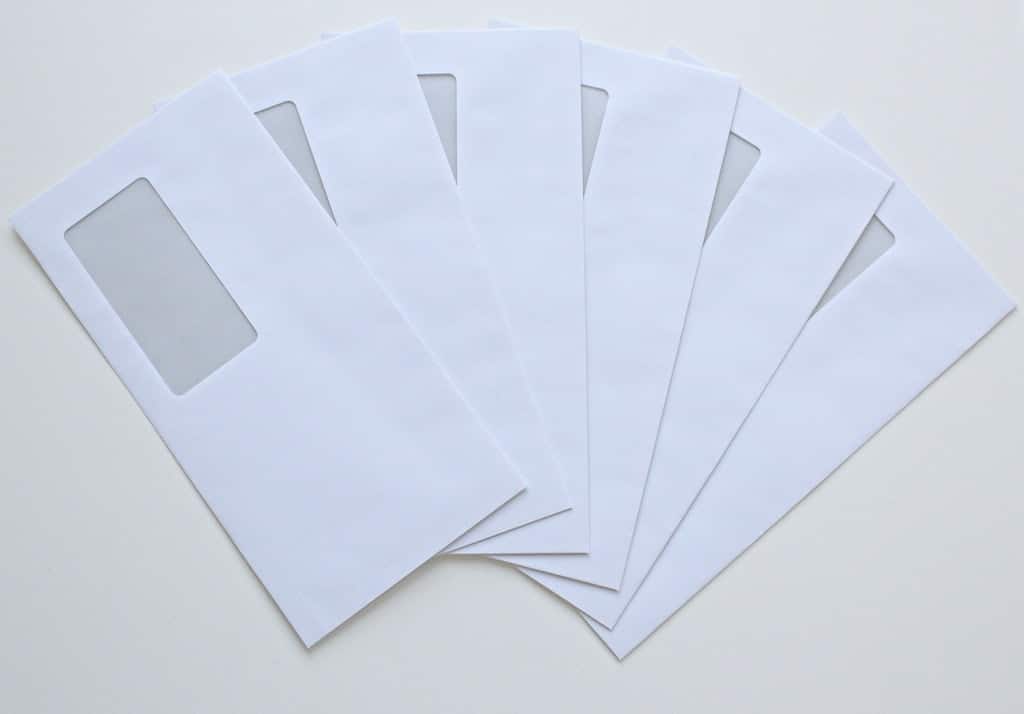How to Budget Your Way to The Famous Millionaire Status

This post may contain affiliate links. I only recommend products I trust or personally use. Please read our disclaimer for more info.
So people are often wondering what it ACTUALLY takes to be a millionaire?
Interestingly enough, most people will make a million dollars or more in their life. That means that in all likelihood you will eventually or have already made a total of a million dollars.
So why aren’t you rich then? Well, more times than not (minus terrible life situations and unforeseen financial disasters) it’s because you simply spend more money than you save.
Usually on food! 😉
LOL, yeah, I was that person once too. You know what I’m talking about.
But seriously, most people will never experience financial stability or freedom because they spend their money versus saving it. They trade future stability and satisfaction for immediate satisfaction.
So, how do you break this habit? How do you give yourself the same mindset that a millionaire has? That “money gives you freedom, and money makes money” mindset. The first step is Budgeting. I emphasize the importance of budgeting so much because it truly is what can change the financial stress in your life.
Why is budgeting so important? Why can’t I just pay my bills and save my money?
Aha. If only it was that simple. Money works a lot like magic. It appears and you’re all excited about it and then suddenly to your confusion, *poof*, it can disappear in a second.
Except unlike a real magic trick, the money isn’t brought back. There is no “prestige” (best movie ever encase you haven’t seen it).
Once you spend it, it’s gone.

(Granted, the above-pictured magician looks quite intimidating, I’m not sure I would give him my money, especially not expecting to get it back. His face is literally hidden in this hood. I feel like I’m watching Pretty Little Liars (don’t judge me) with my girlfriend and her sister and “A” is out to get me.)
Anyways, A lot of people don’t recognize that money spent comes with an opportunity cost. Opportunity cost is the loss of any potential gain from using YOUR money on something that will benefit you in the future instead of what you actually spent it on.
For example, if ten years ago you bought a brand new super cool home theatre system for a thousand dollars, you’d have an outdated, probably poor quality sound system as of today. But, on the other hand, if you bought a thousand dollars’ worth of Amazon ten years ago instead, you’d have $12,398 instead.
Of course, not everyone can buy the Amazon stocks of the world. But it is a good example of how money saved and better spent can make a huge difference for your future.
This is why budgeting is so important, to make sure that the money you actually have goes to a place where it can make a difference for your future instead of just becoming the finale to a magic trick and just disappearing. Now that you’re convinced of how majorly important budgeting is. Let’s get down to the nitty-gritty.
How in the heck do you even budget? Am I right…?
I actually share exactly how I budget in 3 Ways to Control Your Money and Build a Better Life, But in case you haven’t read that one. Let me explain exactly how I do it very quickly.
(If you’re wondering why I don’t use apps like Mint or super detailed budgets, I actually have and did use these for a while. I personally did not like it, for some people it works great. But I believe it causes more stress than it saves sometimes. You can’t always know what will happen in your life and you can’t always know what you will spend on every little thing. So over time, I have established my way of budgeting that I prefer much more.)
So, without further ado, Here is my method.
STEP 1: Write down all your bills.
I write down what date my bills are due, and how much they are for the month. This will give you a total number for the cost of living that remains the same.
Ex. Rent Due the 1st – $1,200.00
Car Note Due the 9th– $270.00
Internet Due the 10th– $60.00
Insurance Due the 18th– $200.00
Gas (estimate) – $70.00
Etc.
Total — $1,800.00
Once you have filled these out, (really put your effort into this, take the time to total up EVERYTHING you KNOW you buy EVERY month, no matter how small the cost.) You now have an idea of how much you’re spending monthly. An estimate on some things like gas is better than nothing.
STEP 2: Plan how to allocate your paycheck to cover your budget.
The next step is making sure those necessary things are paid every single month with no worries. Because if these things are important enough for you to purchase every month than you most likely need them in your life, (some things will be exceptions and you can go ahead and cut things out that you don’t need and cancel them during this stage.)
Ex. The gym membership you never use, or the app you pay for monthly but never use. This eliminates so much stress that comes with misuse of money.
The way I use this total to determine my budget is I divide my total cost of living for the month by 2. (I get paid Bi-Weekly, so one paycheck twice a week, your number will be equal to however many checks you normally get per month.) So if you get paid weekly you will divide by four.
Ex. $2,800/2 is $1,400.
After finding this number I know EXACTLY how much I need to put away every two weeks for bills and other necessary monthly expenses. So when I get my paycheck or any money, I put $1,400 directly into my savings account.
This allows you to never wonder if you will have enough money to pay for the things you buy every single month.
You have to make sure not to dip into that money that you put away, (leaving the money alone is what will help to eliminate your stress of not having enough for bills).
If you get paid weekly then you would put $700 dollars in your savings every payday. (this equals $2,800 monthly to cover all your bills)
Then at the end of the month, you transfer everything you saved specifically for bills to your checking’s account and pay them. No more overspending is possible because the money is off limits for anything other than bills.
This eliminates a world of stress and is a habit that has changed my life.
STEP 3: Make a plan for how to use the leftover money after your budget is covered.
Whatever money is left is the money you have to decide how to use it on your own. I use a method I created that divides the leftover money into four sections. Like a delicious sweet potato pie. (this is actually a bad analogy, who the heck cuts pies into slices of four…)

(You’ll learn quickly that I am quite a fan of pie, and many, many, other sweet treats)
High-Interest Debt (Priority One)
Building up your savings Account (Priority Two)
Investing your money (Priority Three)
Fun Money. (Priority Four)
The percent you put towards each of these sections will solely depend on your situation in life. You might first want to study up on how to control your money and build a better life, to decide how much to contribute to each category.
I personally use a 0/0/70/30 split to allocate the money in my budget, per the four priorities listed above.
I don’t have any high-interest debt anymore as I used this method to pay it off quickly in the past. I also got my savings to a point where I have enough to cover my expenses for a year.
So, I put seventy percent of the money I have left over from my bills into my portfolio.
The remaining thirty percent I have is for fun, hanging out with my girlfriend, spending time with my friends, and treating myself to anything I might want. You will need to adjust your categories accordingly.
If you are in a lot of debt, I would suggest a 50/20/20/10 split, after all major bills are covered.
So you would allocate your leftover money like this:
50% towards High-Interest Debt
20% towards Savings
20% towards Investing
20% towards Fun
If you have little to no savings, you might try a 30/40/20/10 split.
This breaks down into:
30% towards High-Interest Debt
40% towards Savings
20% towards Investing
10% towards Fun
If you have decent savings and little debt to trouble you, a 20/20/40/20 split ought to be good.
This means:
20% towards High-Interest Debt
20% towards Savings
40% towards Investing
20% towards Fun
What are some other budgeting options?
You may be one of those people who needs to see where every dollar goes to really see how much you waste and take better control of your money. Some options if you are one of these people and really want a strict budget.
ALTERNATIVE OPTION 1: Manual budgeting, by hand, with pen & paper.
Manually write down all your transactions for the month.
This is REALLY tough and can really cause a lot of stress. But some people prefer it and it works for them.
You just allow yourself a certain amount of money in your budget for spending and you write down each time you spend money and ensure you don’t overspend. Nothing too complicated about it.
Pros:
- Works if you need to see each individual transaction
- Causes you to think about what you are buying and spending money on.
Cons:
- Time consuming
- Can cause stress and worry about finances because you are thinking of them more
ALTERNATIVE OPTION 2: Envelope method.
This is something I have seen work for old school people, and it’s actually something I have used myself in the past.
The premise is you take your check and cash it, then take the money and split it into envelopes labeled for what the money is used for.

When you run out of money in that envelope, you are no longer allowed to spend any more money on that category. I mean, you kind of can’t, since there isn’t any cash left in there.
Pros:
- This can make you more conscious because cash money is harder to spend then swiping your card because you see the money disappear
- Easy to not overspend and run out of money to pay necessary bills (such as rent, utilities, etc.)
Cons:
- It can be inconvenient to cash a check and carry around money (most people use direct deposit and hardly ever carry cash nowadays)
- Can be tempting to just “borrow” the cash from one envelope for another; still requires high self-discipline
ALTERNATIVE OPTION 3: Automated, digital budget apps.
Using an automated budgeting app like Mint can be really helpful, and I actually used this method longer than any other budgeting method until I started employing my own process I talked about above.
This sort of digital budget lets you set a budget for specific categories and keeps track of each category and your spending in those areas.
While there are many options, Mint in particular can be a really helpful tool since it reminds you of when your bills are due and even offers insight into other things like your credit score too.
Pros:
- It is easy to set up and create an account
- Mostly automated and passive
- Can give you a lot of insight into your money habits (for better or worse)
Cons:
- A lot of things will not categorize properly and can take time to fix
- Can sometimes revert a categorization on its own
- Can disconnect from your accounts and can be frustrating to frequently need to econnect your account(s)
All in all, it doesn’t matter too much what you use to budget, just that you find a way to start and you continue doing it.
A shocking two-thirds of Americans don’t even budget and if they do start a budget they don’t stick with it. That is why I prefer my method over some because it is a lot less strict and over time it becomes like second nature.
However you decide to budget, Just stick with it.
It can be hard over time because it can seem like a time consuming and irritating process. But in the end, the satisfaction from controlling your money through a year worth of budgeting is a fantastic experience.
Not only that, the results that come from it can be life-changing. I know budgeting has been such an important part of getting my life together. Let me know if you guys budget and how you budget, I’d love to hear any other methods. If you don’t, just give it a try. For thirty days at least. See how it feels and see if it makes your life less stressful. I’d love to hear about your experience.
Until the next one,
Noah
[convertkit form=804522]

Hey! I'm Noah Riggs.
Noah is the founder of Busy Living Better and has built a life he loves, despite growing up poor. He shares exactly how he started his six-figure business, became financially stable, and lives his best life so that he can help you do the same. You can read more about how he did all of this before the age of 23!
